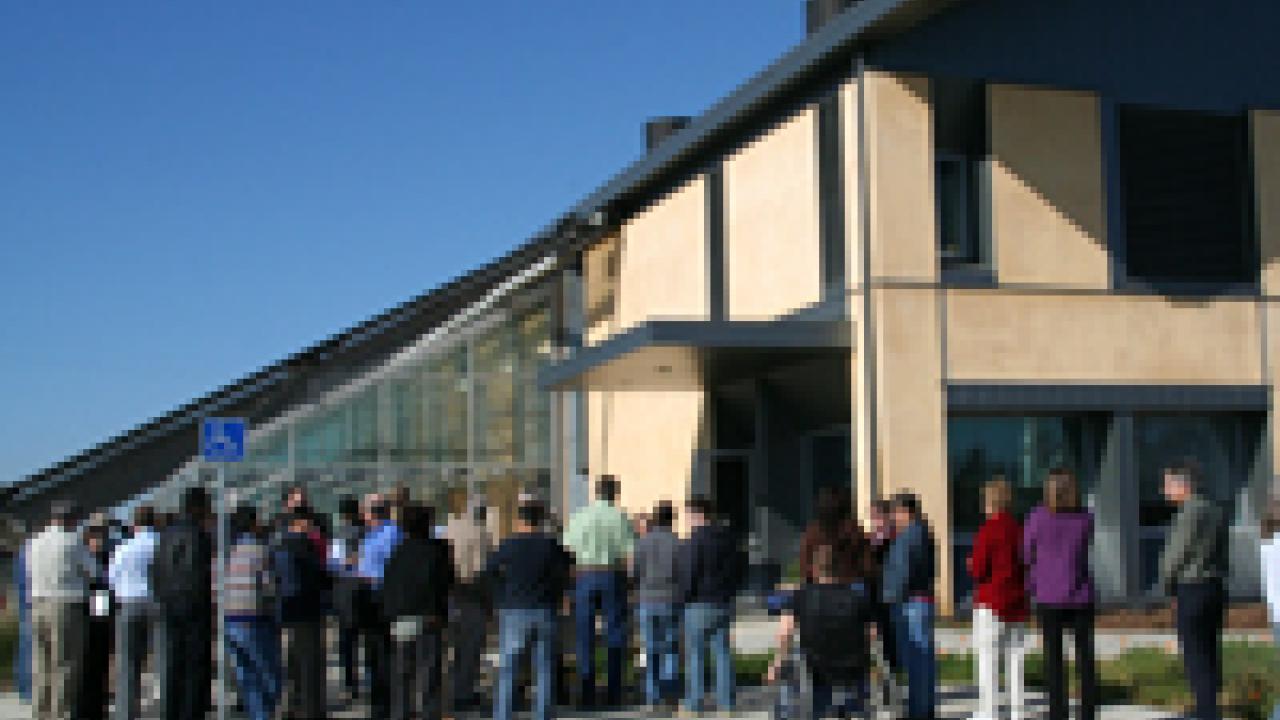UC Davis on Feb. 3 held an open house for its Biological Safety Level 3 plant facility. With greenhouses and a focus on plant pests, it is the only facility of its kind in the western U.S.
Known as the Contained Research Facility, the complex will be used for cutting-edge research on effective and environmentally sound strategies to prevent, detect, eradicate or control plant pests that pose risks to California’s agriculture and ecosystems. Most of the projects will be conducted by UC scientists.
“The Contained Research Facility is designed for research on potentially invasive or non-indigenous plant pests, as well as identified quarantined pests already in California,” said Michael Parrella, associate dean of the College of Agricultural and Environmental Sciences and an entomology professor.
Parrella said the type of pests likely to be studied there include weeds, insects, mites, fungi, nematodes, protozoa, viruses and bacteria. Examples that are currently being studied at the facility include light brown apple moth, glassy-winged sharpshooter and Pierce’s disease and tomato apex necrosis virus, among others.
Housed in the College of Agricultural and Environmental Sciences, the site is on the west side of campus on Hopkins Road.
Three other research sites at UC Davis already have BSL3 containment. This facility, which consists of greenhouses, growth chambers and laboratories, meets federal safeguards to ensure that organisms being studied are not released to the outside as well as other safety measures on solid wastes, ventilation and access.
The building has been open since October 2008.
Ann King Filmer, communications director for the College of Agricultural and Environmental Sciences, contributed to this report.
Media Resources
Clifton B. Parker, Dateline, (530) 752-1932, cparker@ucdavis.edu
